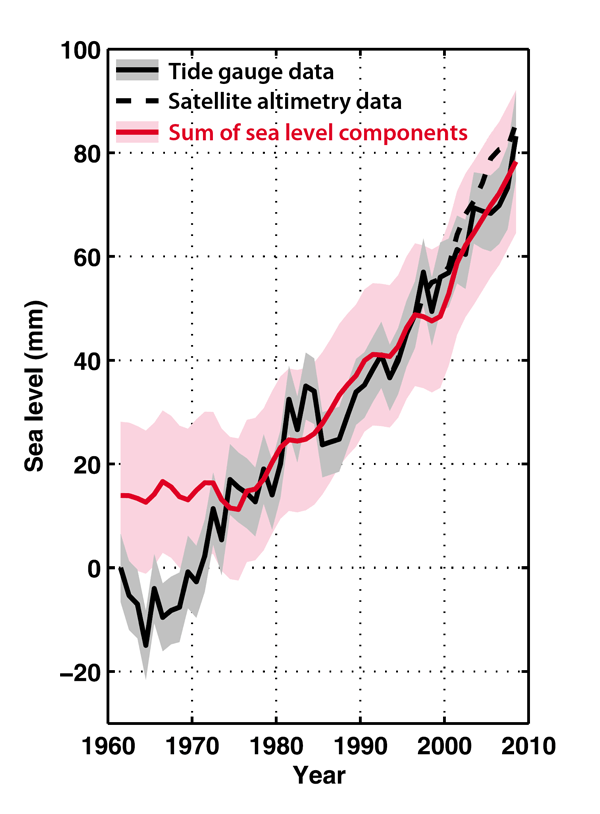Reference
Church, J.A., White, N.J., Konikow, L.F., Domingues, C.M., Cogley, J.G., Rignot, E., Gregory, J.M., van den Broeke, M.R., Monaghan, A.J. and Velicogna, I. 2011. Revisiting the earth's sea-level and energy budgets from 1961 to 2008. Geophysical Research Letters 38: 10.1029/2011GL048794.
Background
The authors write that "sea-level rise is a high-profile and important aspect of climate change," noting that "in the last two Intergovernmental Panel on Climate Change assessments, the sum of observed contributions to sea-level rise has consistently been less than the observed rise over multi-decadal periods, thus reducing confidence in the sea-level projections." Therefore, they made a new attempt at achieving what had been so elusive in the past.
What was done
Noting that earth's sea-level and energy budgets "are closely related and must be solved in a consistent manner," Church et al. "consider them together, using new and updated estimates of all terms for the past five decades," in order to obtain what they feel is the best estimate of mean global sea level rate-of-rise over the period 1972 to 2008.
What was learned
Because of uncertainties affecting various pertinent parameters during the 1960s, Church et al. concentrate on the period 1972-2008, for which they find good agreement between the mean annual sea-level and energy budgets, as is illustrated in the figure below.

Figure 1. Mean global sea level vs. time, as derived from tide gauge data, satellite altimetry data and summing of the individual contributory components to sea level rise. Adapted from Church et al. (2011).
As for what the data of this figure suggest, the ten researchers write that "from 1972 to 2008, the observed sea-level rise (1.8 ± 0.2 mm/year from tide gauges alone and 2.1 ± 0.2 mm/year from a combination of tide gauges and altimeter observations) agrees well with the sum of energy budget contributions (1.8 ± 0.4 mm/year) in magnitude and with both having similar increases in the rate of rise during the period."
What it means
In spite of all one hears, sees and reads in the popular press about unprecedented global warming and recent accelerated melting of glaciers and ice sheets, as well as short-term accelerations in sea level rise detected by means of satellite technology, the mean rate-of-rise of earth's global ocean appears to have remained remarkably constant ever since 1972.




